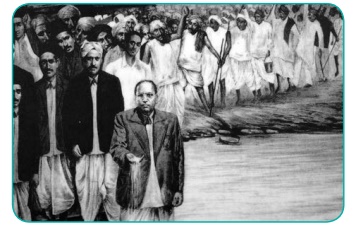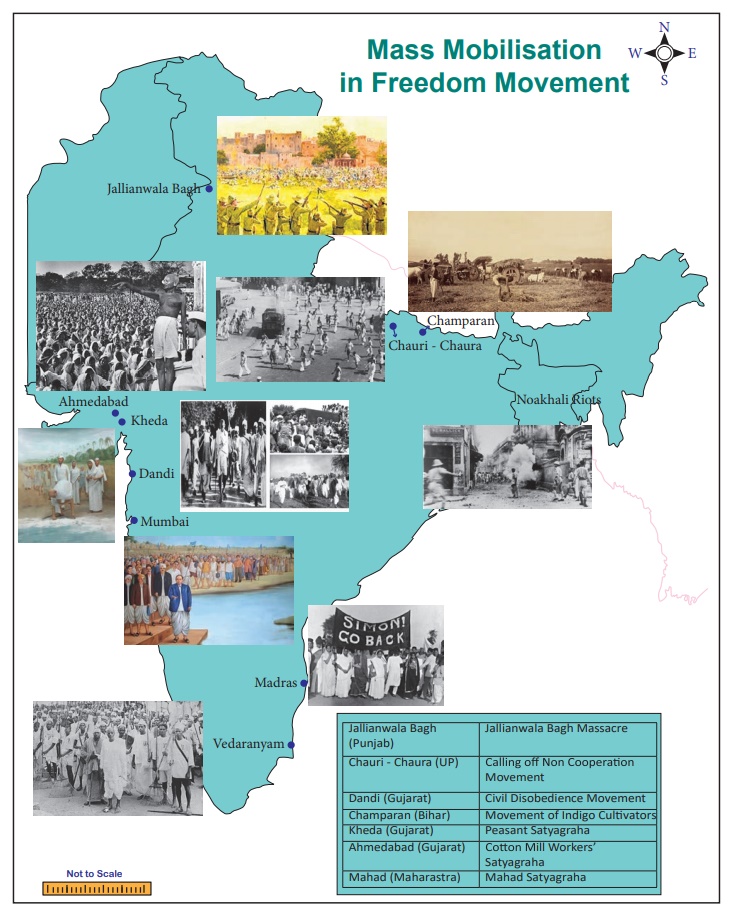Emergence of Dr. B.R. Ambedkar and the Separate Electorates
Dr. Ambedkar came to the centre stage of the struggles of the oppressed world in the 1920’s. Born in the then so-called “untouchable” caste called Mahar in Central India as the son of an army man, he was a brilliant student and was the first to matriculate from his community.
Ambedkar’s Academic Accomplishments
Ambedkar joined the Elphinston College, with the help of a scholarship and graduated in 1912. With the help of a scholarship from the Maharaja of Barona he went to United States and secured a post-graduate degree, and doctorate, from the Columbia University. Then he went to London to study law and economics.
Ambedkar’s brilliance caught the attention of many. Already in 1916, he had participated in an international conference of Anthropology and presented a research paper on ‘Castes in India’, which was published later in the Indian Antiquary. The British government which wassearching for talents among the downtrodden of India invited him to interact with the Southborough or the Franchise Committee which was collecting evidence on the quantum and qualifications to be fixed for the Indian voters.
It was in these interactions that Ambedkar first spoke about separate electorates. He argued the untouchables be given separate electorates and reserved seats. Under this scheme only untouchables could vote in the constituencies reserved for them. Ambedkar felt that if any untouchable candidate contesting elections were to depend on non-untouchable voters he or she would be more obliged to the latter and would not therefore be in a position to worker at freely for the good of the untouchables. If only untouchable voters were to vote and elect in the reserved seats, those elected would be their real representatives.
Ambedkar’s Activism

Ambedkar launched news journals and organizations. Mook Nayak (leader of the dumb) was the journal to articulate his views and the Bahishkrit Hitakarini Sabha (Association for thewelfare of excluded) spearheaded his activities. As a member of the Bombay legislative council he worked tirelessly to secure removal of disabilities imposed on untouchables. He launched the ‘Mahad Satyagraha’ to establish the civic right of the untouchables to public tanks and wells. Ambedkar’s intellectual and public activities drew the attention of all concerned. His intellectual attacks were directed against leaders of the Indian National Congress and the colonial bureaucracy. In the meanwhile the struggle for freedom under Congress and Gandhi’s leadership had reached a decisive phase with their declaration that their objective was to fight for complete independence or ‘Purna Swaraj’.
Ambedkar on Separate Electorate for “Untouchables”
Ambedkar was concerned about the future of “untouchables” and the oppressed in an independent India which was certain to be under the control of Congress under the hegemony of the caste Hindus. He renewed his demand for separate electorates, be it before the All-Parties conference or the Simon commission or at the Round Table Conference. The Congress and Gandhi were worried that separate electorates for untouchables would further weaken the national movement, as separate electorates to Muslims, Anglo Indians and other special interests had helped the British to successfully pursue its divide and rule policy. Gandhi feared that the separation of untouchables from other Hindus politically would also have its social impact.

Communal Award
A meeting between Gandhi and Ambedkar on this issue of separate electorates before they went to London to attend the Second Round Table Conference ended in failure. There was an encounter between the two again in the RTC about the same issue. It ended in a deadlock and finally the issue was left to be arbitrated by the British Prime Minister Ramsay McDonald. The British government announced in August 1932 what came to be known as the Communal Award. Ambedkar’s demands for separate electorates with reserved seats were conceded.
Poona Pact
Gandhi was deeply upset. He declared that he would resist separate electorates to untouchables ‘with his life’. He went on a fast unto death in the Yervada jail where he was imprisoned. There was enormous pressure on Ambedkar to save Gandhi’s life. Consultations, confabulations, meetings, prayers were held all over and ultimately after a meeting with Gandhi in the jail, the communal award was modified. The new agreement, between Ambedkar and Gandhians, called the ‘Poona Pact’ was signed.
The Poona Pact took away separate electorates but guaranteed reserved seats for the untouchables. The provision of reserved seats was incorporated in the constitutional changes which were made. It was also built into the Constitution of independent India.
Ambedkar and Party Politics
Ambedkar launched two political parties. The first one was the Independent Labour party in 1937 and the second Scheduled Caste Federation in 1942. The colonial government recognizing his struggles and also to balance its support base used the services of Ambedkar. Thus he was made a member of the Defence Advisory Committee in 1942, and a few months later, a minister in the Viceroy’s cabinet.
The crowning recognition of his services to the nation was electing him as the chairman of the Drafting Committee of the independent India’s Constitution. After independence Ambedkar was invited to be a member of the Nehru cabinet.














